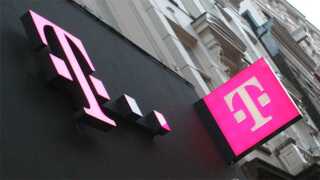The guidance for National Regulatory Authorities (NRAs), which were published by the Body of European Regulators of Electronic Communications (BEREC) following a six-week consultation, will be used to enforce laws adopted across the EU in November last year.
BEREC received almost 500,000 submissions as it sought feedback on the net neutrality laws. The 45-page document introduced yesterday (August 30) said that service providers will be able to provide so-called specialised services over dedicated network capacity if it is “objectively necessary” and does not negatively impact the wider internet.
Some “specialised services” which require sufficient bandwidth and cannot slow down standard services, could be exempt from the rules, which aim to promote the equality of all internet services. These include VoLTE, broadcast IPTV and real-time health services. 5G services that use network slicing was also added to this list.
A joint statement by European Commission vice president Andrus Ansip and commissioner Günther Oettinger said: "Today's guidelines provide detailed guidance for the consistent application of our net neutrality rules by national regulators across the EU.
“Our rules, and today's guidelines, avoid fragmentation in the single market, create legal certainty for businesses and make it easier for them to work across border. They also ensure that the internet remains an engine for innovation and that advanced technologies and Internet of Things services like connected vehicles as well as 5G applications are developed today, and will flourish in the future.”
But the guidelines may come as a blow to some in the telecoms industry, who were looking for the freedom to prioritise certain data types over others, in order to boost revenues.
On the key issue of zero-rating, which involves offering some data services for free once a customer has exceeded a data cap, the guidance stressed some practices, such as accessing a customer service website to buy more data, should be allowed. This was changed from the original guidance, which banned the practice entirely, following industry feedback.
The guidance also dictated that traffic and network management can only be used as an argument against net neutrality “under limited circumstances”. Any throttling and traffic management that interferes with or slows down services is banned.
"Unnecessarily prescriptive"
Telecoms lobbying group ETNO warned that the net neutrality laws should not harm innovation.
ETNO director general Lise Fuhr said in a statement: “Telecoms innovation empowers consumers and businesses. Let’s make sure the implementation of net neutrality rules does not hamper new applications and services.”
Research institute the Information Technology and Innovation Foundation (ITIF) praised BEREC for not implementing a complete ban of traffic management and zero-rating, but called the guidelines “unnecessarily prescriptive”.
Telecom policy analyst Doug Brake added: “It is good news that BEREC stopped short of categorical bans on offerings like prioritisation of traffic, zero-rating, and specialised services, despite fervent calls to do so by net neutrality activists.
“But beyond that, the guidelines are unnecessarily prescriptive, setting detailed restrictions on each of these practices that will likely diminish pro-competitive, pro-consumer broadband-based offerings. We hope the continued success of zero-rating and specialized services sees an easing of these restrictions over time at the nation-state level.”
The rules will now be implemented by regional regulators, with the NRAs due to publish annual reports on its implementation, with the first due by 30 June 2017.
BEREC will publish the 44% of consultation documents marked non-confidential by September 30. The rules follow last year's Federal Communications Commission (FCC) decision to introduce net neutrality laws in the US, leading to numerous lawsuits against the regulator from the telecoms industry.
The FCC told Capacity: "We do not have any comment on the EU guidelines."




